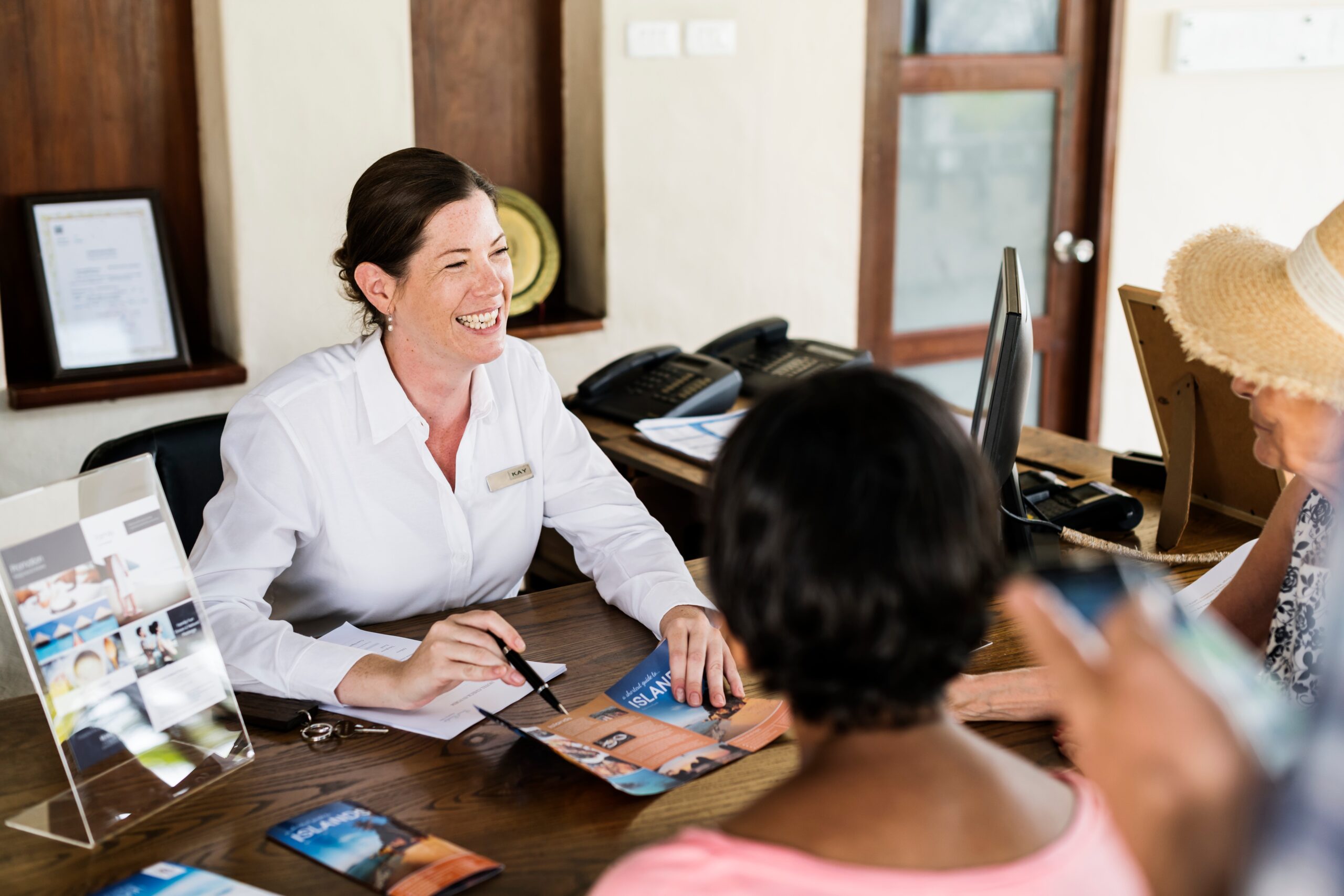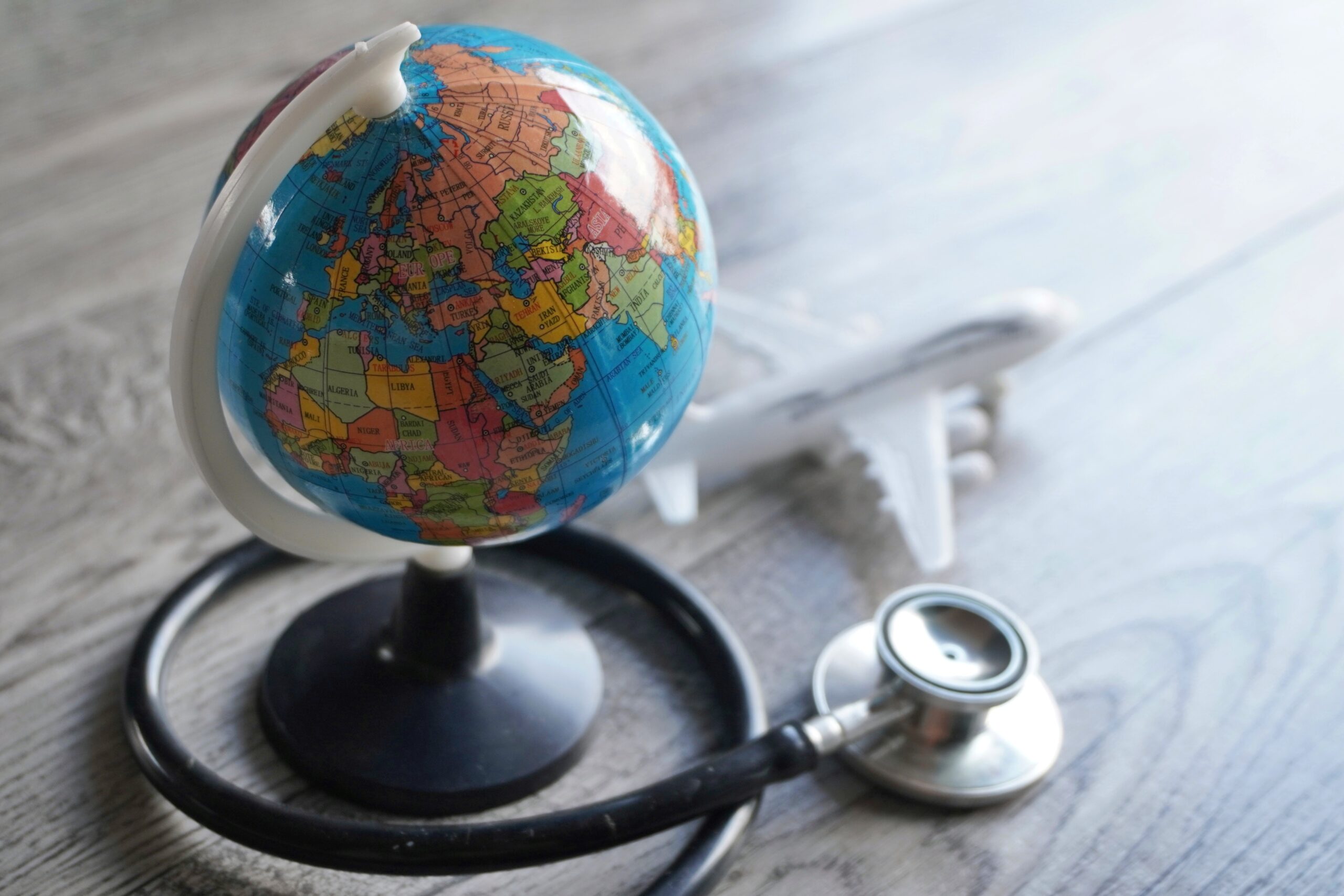Receiving healthcare abroad has become an option increasingly preferred by many people. However, choosing the right health clinic is one of the most critical steps in this process. In addition to the advantages offered by health tourism, it is vital to be aware of the potential risks and make informed choices. Key Criteria to Consider …
Receiving healthcare abroad has become an option increasingly preferred by many people. However, choosing the right health clinic is one of the most critical steps in this process. In addition to the advantages offered by health tourism, it is vital to be aware of the potential risks and make informed choices.
Key Criteria to Consider When Choosing a Health Clinic Abroad
There are many advantages to receiving healthcare abroad. These include advanced medical technologies, experienced healthcare personnel, and more affordable treatment options in many countries. Additionally, in some countries, patients can access the most suitable health solutions for themselves thanks to specialized treatment methods and advanced clinical infrastructure. However, alongside these advantages, quality and reliability must also be carefully considered. Choosing the wrong clinic can lead to undesirable outcomes during the treatment process.

One of the most important factors when evaluating the quality of a clinic is the accreditations and international certificates it holds. For example, certificates such as JCI (Joint Commission International) and ISO (International Organization for Standardization) indicate that the clinic meets certain quality standards. These types of documents are a reliable indication that the healthcare institution operates in accordance with international criteria in terms of both patient safety and treatment quality.
The clinic's infrastructure and technological equipment are also elements that should be prioritized in the selection process. Modern medical devices and technologies increase the effectiveness of diagnosis and treatment. Therefore, clinics offering next-generation imaging devices, robotic surgical systems, and advanced laboratory facilities stand out. Additionally, the experience and education level of the healthcare staff are critical factors affecting treatment success. Specialist doctors should have deep knowledge in their fields as well as international experience.
Patient reviews and references are also an important guide in the clinic selection process. Accessing the experiences of real patients provides valuable information about the quality of services offered by the clinic. Positive feedback demonstrates the reliability of clinics, while potential complaints and shortcomings are also revealed. Therefore, patient reviews should be carefully examined and, if possible, more information should be obtained through direct communication.
When choosing a healthcare clinic abroad, instead of focusing solely on superficial criteria such as price or comfort, all of these fundamental criteria should be taken into account. Because healthcare is, above all, a field that requires trust and quality. The equipment of the facility where the healthcare service is provided, the expertise of the staff, and compliance with international standards directly affect the success of the treatment process. Thus, patients can experience both a healthy and peaceful treatment experience.
Health Tourism Abroad and Regional Differences in Clinic Selection
When choosing a clinic abroad within the scope of health tourism, it is very important to be aware of regional differences. Different countries around the world offer various advantages and areas of expertise in terms of health tourism. Therefore, it is necessary to carefully evaluate which country's healthcare system and clinic standards are more suitable for your needs.
Popular Health Tourism Destinations and Clinic Preferences
Countries such as Turkey, Germany, India, and Thailand stand out as prominent destinations for health tourism. Turkey attracts international patients especially with its high-quality services and affordable pricing in the fields of aesthetic surgery and hair transplantation. Germany is generally preferred for complex treatment processes due to its advanced healthcare infrastructure, high-tech applications, and experienced specialist staff. India holds an important place in health tourism by offering economical solutions in areas such as organ transplantation and cardiovascular surgery. Thailand is known for providing comprehensive services in dental treatment and aesthetic operations.
[GLOBALISER_IMAGE_PLACEHOLDER_3470_3]
Comparison of Regional Health Systems and Clinical Standards
Each country's health system and clinical standards differ. While European countries are generally known for strict regulations and high-quality standards, Asian countries prioritize cost advantages. Considering these differences, it is necessary to research the functioning of the health system in the region where you want to receive treatment and the compliance of clinics with international standards. Clinics having certifications such as JCI or ISO indicate that standards are met and increase patient safety.
Language Barriers and Ease of Communication
Language barriers are one of the significant challenges that can be encountered when receiving healthcare abroad. Establishing clear and accurate communication between the patient and healthcare personnel during the treatment process is a critical factor for treatment success. Therefore, it is preferable that doctors and nurses working in the clinic speak the patient's native language or at least communicate in a common language such as English. Some clinics offer interpreter services to help patients overcome language barriers. Ease of communication not only ensures the smooth progress of the treatment process but also contributes to the patient feeling more secure.
[GLOBALISER_IMAGE_PLACEHOLDER_3470_4]
The Impact of Logistic Factors Such as Visa, Transportation, and Accommodation
Patients seeking healthcare abroad need to plan logistical details such as visa procedures, transportation, and accommodation in advance. While some countries implement special visa procedures for health tourism, others provide conveniences for patients. Easy access to clinics and reliable accommodation options increase patient comfort. Most clinics offer package services to support patients during these processes; for example, airport transfers, hotel reservations, and local transportation.

Region-Specific Treatment Areas and Specialties
Every health tourism destination has its own unique areas of expertise. For example, Turkey is recognized as a regional center for aesthetic surgery and hair transplantation, while India stands out in heart surgery and organ transplantation. Thailand is notable for the high-quality services it offers in aesthetic procedures and dental treatments. Germany provides treatment at international standards in complex specialties such as oncology and neurology. These differences guide patients in choosing the appropriate clinic and country according to their needs. Researching which country is more advanced and experienced in your treatment area is very important for a successful health tourism experience.
Thus, selecting a clinic by considering regional differences not only improves the quality of treatment but also makes the process more efficient and comfortable. For a positive health tourism experience, factors such as the clinics' areas of expertise, the reliability of the healthcare system, and ease of communication should be evaluated, in addition to price and accessibility.
Cost and Insurance Factors in Choosing a Health Clinic Abroad
When receiving healthcare abroad, treatment costs are one of the most closely considered factors in the decision-making process. However, instead of just comparing prices, costs need to be evaluated comprehensively. Factors such as the contents of treatment packages, additional expenses, accommodation, and transportation costs play an important role in budget planning. Therefore, when comparing treatment costs, it is necessary to conduct detailed research and ensure that each item is clearly calculated.
Within the scope of health tourism, many clinics apply different pricing policies. While some present the treatment cost transparently, others may charge surprise fees for additional services. In this regard, price transparency of clinics is of great importance. Clearly stating all costs before treatment prevents financial surprises later on. Additionally, offering payment options suitable for the patient's budget is also a reason for preference. Having different methods such as upfront payment, installment plans, or credit card payments provides convenience for patients.
The validity and coverage of health insurance abroad is also a critical factor in cost planning. Most local health insurances may exclude treatments performed abroad or only provide partial payment. Therefore, it should be clarified in advance whether the insurance policy covers international health services. Some private insurance companies offer comprehensive packages for overseas treatments, easing the financial burden on patients. Patients need to consult with their insurance companies to fully understand their rights and responsibilities regarding the health services they will receive abroad.
When evaluating costs, the risks of cheap clinics must also be taken into account. Very low prices often mean poor quality service, inadequate infrastructure, or inexperienced medical staff. Receiving treatment at such clinics may save money in the short term but can lead to serious health problems and additional costs in the long run. Therefore, making a balanced choice between price and quality is vital for a healthy treatment process.
Financial support options are another factor that should not be overlooked when choosing a healthcare clinic abroad. Some clinics offer financing options to their patients; for example, payment plans, credit facilities, or suitable financial solutions provided through health tourism consultants. This way, high-cost treatments become more accessible, and patients can focus more comfortably on the treatment process.
In conclusion, cost and insurance factors should be carefully considered during the process of choosing a healthcare clinic abroad. When comparing prices, attention should be paid not only to the treatment fee but also to insurance coverage, additional expenses, and payment conveniences. Before being tempted by cheap options, focusing on the clinics' alignment with quality and reliability criteria ensures the right choice both medically and economically.
Patient Rights and Safety Measures in Choosing a Healthcare Clinic Abroad
When receiving healthcare services abroad, protecting patients' rights and fully implementing safety measures are among the most important factors. Issues such as patients' right to informed consent, privacy protection, and emergency management during the treatment process directly affect the quality of healthcare.
Patient Rights and the Informed Consent Process
Every patient must have comprehensive and understandable information about the procedures to be performed before treatment. The informed consent process is mandatory for the patient to agree to the treatment and is one of the cornerstones of ethical healthcare. Patients receiving healthcare abroad may face difficulties during this process due to language barriers or different healthcare systems. Therefore, it is vital for clinics to clearly inform patients and ensure their understanding. Treatment methods, possible risks, side effects, and alternative options must be fully explained to the patient.
Data Privacy and Patient Confidentiality Policies
Patient information confidentiality is a critical issue to consider when choosing a healthcare clinic abroad. Clinics must provide data privacy policies and security measures to protect patient data. Protecting personal and medical information from unauthorized access is both a legal and ethical obligation. Clinics that comply with international standards in this regard gain patients' trust and conduct the treatment process more effectively.
Emergency and Complication Management Procedures
Management of emergencies and complications that may arise during treatment abroad is one of the primary evaluation criteria when selecting a clinic. Clinics must be equipped with emergency response teams and necessary medical equipment. Additionally, having clear and effective procedures to be followed in case of complications is a critical factor for patient safety. Continuity of post-treatment support services and maintaining open communication channels ensure that patients feel secure.
Clinic Insurances and Patient Safety Protocols
Most advanced clinics have various insurance practices to ensure patient safety. These insurances protect patients against errors or complications that may occur during treatment. Additionally, the patient safety protocols implemented by clinics cover topics such as infection control, sterilization, and hygiene standards. Compliance with these protocols enhances the quality of healthcare services and patient satisfaction.
Post-Treatment Support and Communication Channels
When choosing a health clinic abroad, the scope of post-treatment support services is at least as important as the treatment process itself. Clinics' ability to respond quickly and effectively to patients' post-treatment questions and needs positively affects the patients' recovery process. Continuous communication channels established through phone, email, or online platforms ensure that patients do not feel alone. Additionally, planning post-treatment check-ups and follow-ups is crucial for the early detection of complications. Therefore, the scope of post-treatment support services at the clinic to be chosen must be thoroughly researched.
is at least as important as the treatment process itself. Clinics' ability to respond quickly and effectively to patients' post-treatment questions and needs positively affects the patients' recovery process. Continuous communication channels established through phone, email, or online platforms ensure that patients do not feel alone. Additionally, planning post-treatment check-ups and follow-ups is crucial for the early detection of complications. Therefore, the scope of post-treatment support services at the clinic to be chosen must be thoroughly researched.
Practical Steps and Resources for Choosing the Right Health Clinic Abroad
Choosing a health clinic abroad is a complex process; however, when the right steps are taken, this process becomes much easier and yields successful results. Utilizing reliable online platforms and resources during clinic research provides quick and accurate access to information. These platforms offer detailed information about clinics' accreditations, patient reviews, treatment areas, and pricing. This way, patients can compare different clinics and determine the one that best suits their needs.
Clinic visits and preliminary consultations provide a significant advantage in the decision-making process. If possible, seeing the clinics in person before treatment, getting to know the environment, and meeting the healthcare staff face-to-face gives the patient confidence. Additionally, the scope of services offered at the clinic, the technologies used, and hygiene standards can be directly observed. During preliminary consultations, obtaining detailed information about the treatment plan, costs, and process helps clarify expectations.

Working with health tourism consultants and intermediaries facilitates the management of the process. These experts provide professional support in selecting clinics that meet patients' needs and offer guidance on logistics, visa procedures, accommodation, and similar matters. Thus, patients can focus on the treatment process and cope more easily with potential issues. Consultants also accelerate communication with clinics, enabling more effective creation of treatment plans.

Careful review of the clinic contract and treatment plan is a critical step for clarifying rights and responsibilities. The contract should clearly specify the scope of treatment, costs, cancellation conditions, and emergency procedures. This document prevents potential disputes in the future and protects the patient's rights. The treatment plan should include the procedures to be implemented step by step, durations, and expected outcomes. Thus, the patient is informed at every stage of the process and actively participates in it.

Finally, choosing a clinic according to personal needs and expectations increases success. Each patient's health condition, treatment priorities, and comfort expectations are different. Therefore, criteria such as the expertise of the treatment area, communication language, cost balance, and patient satisfaction should be considered when selecting a clinic. Clinics that offer a personalized approach make the treatment process more efficient and satisfying.
These methods, supported by practical steps, facilitate the selection of a health clinic abroad and ensure that patients make the right choices. Thus, the health tourism experience becomes both a high-quality and safe process. When healthy decisions combine with quality service and effective communication, healthcare services received abroad provide benefits far beyond expectations.
Regional Differences in Health Tourism Abroad and Clinic Selection
As health tourism abroad becomes increasingly popular, the services offered by clinics in different regions, their quality standards, and areas of expertise show significant differences. Therefore, understanding regional characteristics well when choosing a clinic not only improves treatment success but also makes the process more comfortable.
Popular Health Tourism Destinations and Clinic Preferences
Among the leading countries in health tourism worldwide are destinations such as Turkey, Germany, India, and Thailand. Turkey stands out especially for its quality services and competitive pricing in the fields of aesthetic surgery and hair transplantation. Additionally, due to its geographical location and cultural proximity, it is an attractive option for Turkish patients. Germany is preferred more for complex and high-risk treatments with its advanced medical technology and experienced specialist staff. Germany is globally recognized in fields such as cardiac surgery, oncology, and neurology. India holds an important place in the health tourism market with its affordable treatment options and specialties such as organ transplantation. Thailand is preferred for dental treatments and aesthetic operations due to the high quality and economic advantages it offers.
Since each destination offers different services and areas of expertise, it is very important to choose between countries according to the type of treatment. For example, Turkey and Thailand stand out in aesthetic surgery, while India attracts more patients in organ transplantation.
Comparison of Regional Health Systems and Clinical Standards
Different countries have significant differences in how their health systems operate and the quality standards of clinics. In European countries, health services are subject to strict regulations and clinics are expected to have international accreditations. This provides an important advantage in terms of patient safety and treatment quality. On the other hand, in Asian countries, cost advantage is often prioritized; however, some clinics manage to provide services at high standards. Therefore, it is necessary to thoroughly research the regional health systems and clinic accreditations. Clinics having international certificates such as JCI, ISO is an indicator of standardization and patient safety.
Language Barriers and Ease of Communication
One of the biggest challenges when receiving healthcare abroad is the language barrier. Establishing effective communication between the patient and healthcare personnel during the treatment process is critical for treatment success. When choosing a clinic, it is important that the staff can speak the patient's native language or at least communicate in English. Additionally, some clinics offer interpreter services to help patients overcome this obstacle. Ease of communication allows the patient to feel comfortable and secure, while also reducing risks associated with misunderstandings.
The Impact of Logistic Factors Such as Visa, Transportation, and Accommodation
In health tourism planning, not only the treatment process but also logistical details such as visa procedures, travel, and accommodation are of great importance. While some countries implement special procedures like health tourist visas, in others this process is simpler. Ease of travel and suitable accommodation options positively affect the treatment process. Most clinics offer services such as airport transfers, hotel reservations, and city transportation to their patients. These kinds of logistical supports make it easier for patients to focus on treatment and make the process smoother.
Region-Specific Treatment Areas and Specializations
Each region hosts clinics specializing in specific medical fields. Turkey is known as a regional leader in aesthetic surgery and hair transplantation, while Germany stands out with advanced oncology and cardiology treatments. India is one of the attractive centers of health tourism with its affordable and high-quality services in organ transplantation and cardiovascular surgery. Thailand is preferred for its high-quality dental treatment and cosmetic surgery services. Knowing the regional specialties according to the type of treatment facilitates the correct choice of clinic and increases the effectiveness of the treatment process.
Thus, choices made by considering regional differences provide significant advantages to patients both financially and medically. This informed decision within the scope of health tourism not only increases the success of the treatment but also makes the process more comfortable and less stressful for patients.





